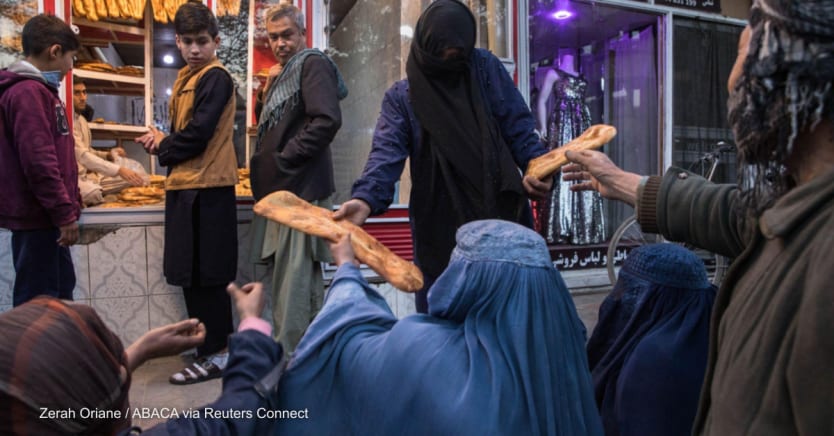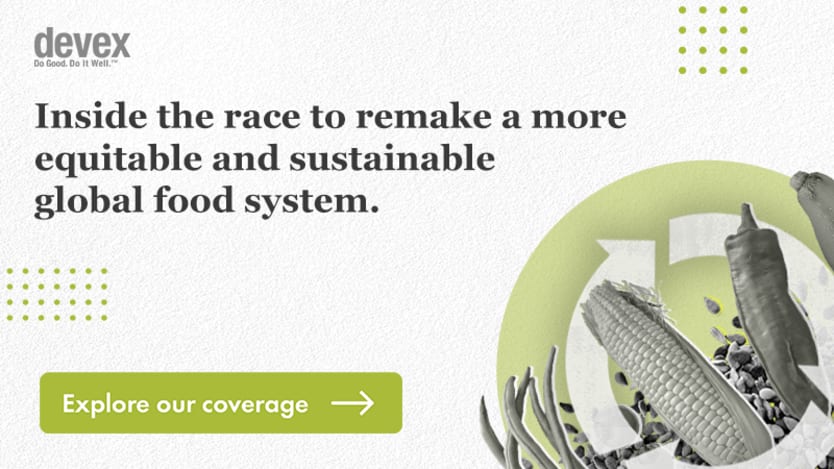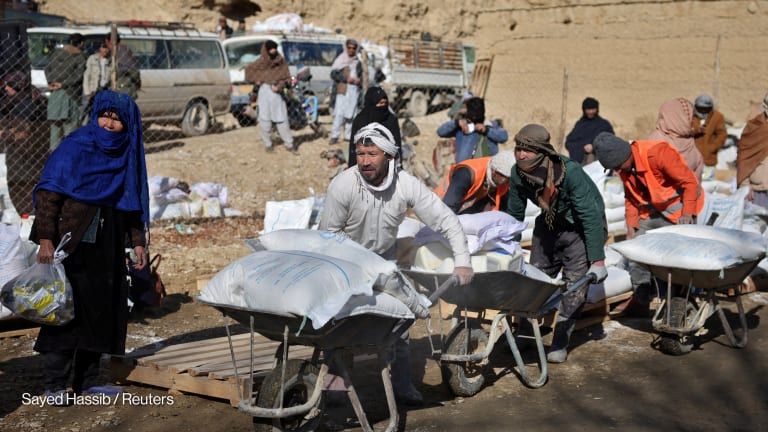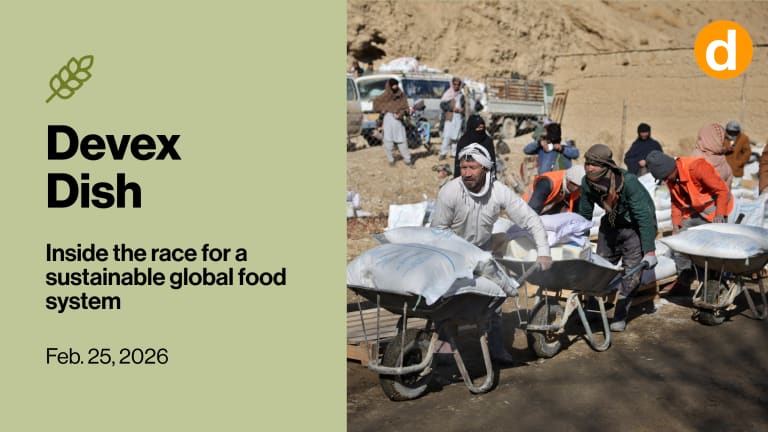
Afghanistan is facing a rough winter as temperatures drop, unemployment remains elevated, and a banking crisis shows no signs of abating. Aid workers warn the worst is still ahead unless a political solution is reached to end the impasse that is leaving the country isolated from the global economy.
“If no solution is found, it will get worse, that’s for sure,” Ingy Sedky, a spokeswoman for the International Committee of the Red Cross, told Devex from Kabul on Monday. “It’s not something any humanitarian organization can solve. A political solution must be found.”
“Until there is an improved situation in the economy or a reinstatement of salaries, people will need assistance.”
— Shelley Thakral, spokeswoman, WFPThe country’s banking system is in shambles, with long lines outside bank branches for people trying to withdraw what little money they can, even as the value of the local currency plummets.
Meanwhile, aid workers say the cost of food is skyrocketing — a problem compounded by the lack of paying jobs. For example, most teachers are not collecting salaries. The United Nations describes the country as in “free fall.”
Afghanistan has relied heavily on international donors for nearly two decades. But since the Taliban takeover in August, foreign support for the government has been cut, meaning employees of the state are stranded.
ICRC is among those trying to fill gaps by paying the salaries of some health care workers, but Sedky said it is hardly enough.
“A more comprehensive solution must be found for the banking system to function normally,” she said.
This month, key donors agreed to release a tranche of money for UNICEF and the World Food Programme, with the $280 million destined for health care and desperately needed food aid. But sanctions remain in place, and billions of dollars in Afghan assets abroad are frozen, despite calls to lift restrictions that cause humanitarian harm.
Members of the U.S. Congress recently joined the push for relaxing the rules. In a letter to Secretary of State Antony Blinken, lawmakers said Washington should release more funds to U.N. agencies and also carve out more exemptions for humanitarian organizations. Notably, they also directly asked for the resumption of salary payments to government workers.
The letter requests that Blinken respond by the middle of January, meaning more weeks of cold winter weather will pass in the meantime.
“The economy is in free fall, collapsing before our eyes,” said Shelley Thakral, a spokeswoman for WFP in Kabul. The organization is seeing a sharp uptick in the number of people needing help. Families who once drew government salaries are joining the lines for food aid, she said.
“Until there is an improved situation in the economy or a reinstatement of salaries, people will need assistance,” according to Thakral.
At least 23 million people — more than half the population — are now in need of assistance from WFP, and that figure could rise further. An estimated 98% of the population does not have enough to eat, up from 81% earlier this year, according to the agency.
The numbers are staggering and exceed the estimates that WFP had made going into 2021. Along with the collapse of the government, the situation was compounded by drought, putting more pressure on the food system.
Get the inside track on how agriculture, nutrition, sustainability, and more are intersecting to remake the global food system in this weekly newsletter.
People are already cutting back on meals, and signs indicate that hunger is worsening quickly in some parts of the country, according to aid groups. Nora Hassanien, Save the Children’s acting country chief in Afghanistan, recently said parents are coming to clinics with young children who are “dangerously thin and malnourished.”
WFP imports large portions of aid from neighboring countries and intends to use the disbursement of cash from donors to maintain supplies into 2022, but this is not enough.
“We need $220 million a month. That’s about $100 a person,” Thakral said. To reach those figures, the U.S. and other key players would have to relax sanctions and increase cash flows.
At a recent summit in Pakistan, the Organisation of Islamic Cooperation said it would set up a fund to help Afghanistan, aiming to put it into operation by early next year. The details remain vague, however.

Search for articles
Most Read
- 1
- 2
- 3
- 4
- 5








